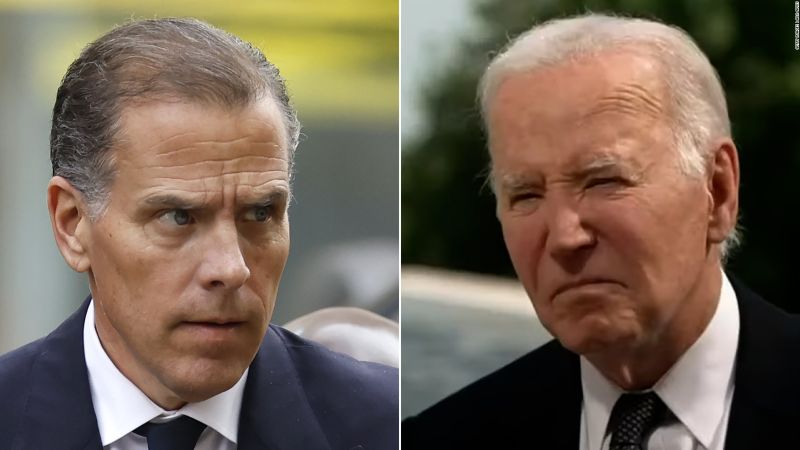President Joe Biden made it clear in an interview with ABC News that he will not pardon his son, Hunter Biden, if he is found guilty in his federal gun trial. This statement comes amid ongoing controversy surrounding Hunter Biden’s business dealings and personal life. The president’s decision not to offer any potential pardon reflects his commitment to upholding the rule of law and ensuring justice is served fairly. It also serves to distance himself from any involvement in his son’s legal troubles, reaffirming his dedication to transparency and accountability in his administration.
The decision not to pardon Hunter Biden if he is convicted in his gun trial showcases President Biden’s commitment to ethical governance and principled leadership. By publicly stating that he will not intervene in his son’s legal proceedings, the president sets a precedent for upholding the integrity of the justice system and allowing due process to run its course. This move also reinforces the administration’s stance on accountability and responsibility, signaling that even members of the president’s own family are not above the law and will face consequences for any wrongdoing.
The controversy surrounding Hunter Biden’s federal gun trial has brought increased scrutiny to the Biden family and raised questions about potential conflicts of interest. President Biden’s unequivocal statement that he will not pardon his son in the event of a guilty verdict aims to address concerns about nepotism and special treatment. It serves as a reminder that the president is committed to upholding the highest ethical standards and ensuring that all individuals, regardless of their familial connections, are held accountable for their actions. This firm stance helps to maintain public trust in the administration and demonstrates a commitment to fairness and justice.
President Biden’s stance on the issue of potentially pardoning his son if convicted in his gun trial reflects his broader approach to governance and his commitment to upholding the rule of law. By emphasizing that he will not interfere in the legal process and that his son will face any consequences that may arise from his actions, the president demonstrates a dedication to transparency and accountability. This decision also serves to differentiate the president’s administration from the previous administration, which was marked by allegations of corruption and abuse of power. President Biden’s willingness to let the justice system take its course sets a positive example for ethical leadership and responsible governance.
The decision not to pardon Hunter Biden in his federal gun trial underscores President Biden’s commitment to integrity and respect for the legal system. By refraining from any potential intervention in his son’s legal proceedings, the president upholds the principle that justice must be served impartially and without favoritism. This principled stance sends a strong message that the president is dedicated to upholding the rule of law and ensuring that all individuals, regardless of their personal connections, are held accountable for their actions. It also serves to enhance the credibility of the Biden administration and demonstrate a commitment to ethical governance.
In conclusion, President Joe Biden’s assertion that he will not pardon his son Hunter if he is found guilty in his federal gun trial highlights his dedication to ethical leadership and adherence to the rule of law. By affirming his commitment to allowing the legal process to unfold without interference, the president sets a standard for accountability and transparency in his administration. This decision underscores the importance of upholding the highest ethical standards and ensuring that all individuals are subject to the same legal scrutiny, regardless of their familial ties. Ultimately, President Biden’s willingness to let justice take its course reflects his commitment to principled governance and maintaining public trust in his administration.


